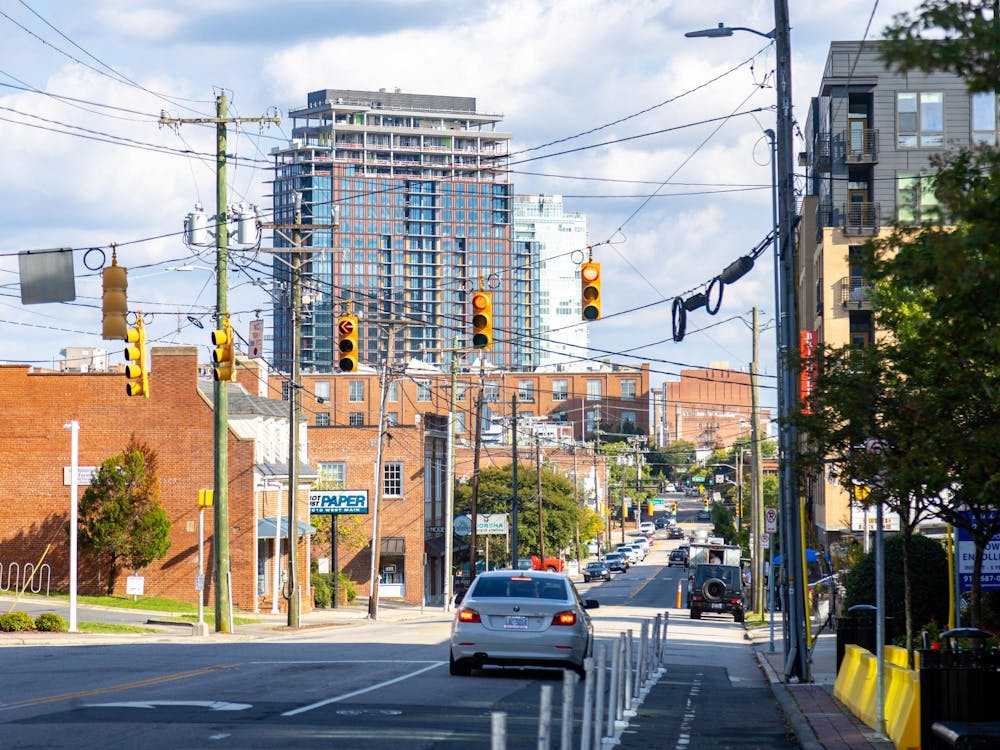During his bid to become president of the United States, Donald Trump promised to “carry out the largest deportation operation in American history.” However, some Durhamites did not anticipate the arrests to occur so close to home following the administration’s Feb. 13 action targeting Durham neighborhoods.
That Thursday, U.S. Customs and Border Protection officers detained 11 Durham residents whom they identified as “illegal aliens.” Typically, Immigration and Customs Enforcement targets undocumented immigrants with criminal records and who pose public safety threats, while the U.S. Border Patrol manages cases related to unauthorized entry. It is not clear whether the 11 detainees had criminal records or search warrants against them.
Melanie Perez-Romero, a first-generation student and Durham native, said she woke up one morning to reports of arrests in her city.
"I was like ‘what happened or what can I do?’” she said, adding that she “wasn't surprised [that] these raids [we]re happening again [but] shocked at how quickly they were happening.”
She also expressed concerns over the safety of certain members of her family, even though they are under temporary protection status.
Perez-Romero stated that many immigrants decide to come to the U.S. in search of a better standard of living. However, she sees the Trump administration’s tightened immigration policies as having dashed those hopes for many.
To her, the American Dream has turned “into a nightmare.”
“A lot of immigrant communities are very tight knit, and family is the center of what their values are,” Perez-Romero said. “I think breaking families apart is such a catastrophe for so many people's lives.”
First-year Julissa Aguilar Galdamez was born in Durham to immigrant parents from El Salvador. She recalled feeling “fear and confusion” during Trump’s first term in office when she was in middle school. Now with a better understanding of current affairs, her confusion has turned into concern for “what's to come in the future.”
Though none of her relatives were affected by the recent detentions, Galdamez shared that one of her family members quit their job, fearing they would be pulled over by law enforcement officials while commuting long distances.
“Hearing my friends and their experiences, just being fearful of going out and doing things that are normal — grocery shopping, driving to work — it's all just very overwhelming,” Galdamez said.
According to Perez-Romero, undocumented populations face obstacles such as access to daily necessities and services, including food stamps and health insurance. She noted that this is accompanied by distrust with public institutions, like law enforcement agencies.
Galdamez also discussed the dangers of when the police no longer serve as a “protective force,” noting that immigrant communities may be discouraged to report crimes out of fear for their own safety.
Amid heightened fears and widespread misinformation — such as a hoax ICE vehicle at a local grocery store — some undocumented communities have turned to advocacy hotlines and local community organizations.
Maria Peralta is one of the organizers of Siembra NC, a grassroots Latino advocacy group operating in over nine counties across the state. Its mission includes raising community awareness in response to suspected ICE and law enforcement activity toward immigrant populations through a hotline network and ICE watch trainings. The organization verifies reports and sightings by community members to inform residents of potential threats.
In the aftermath of the Feb. 13 raid, Peralta recalled knocking on the doors of Latino neighborhoods to alert local residents of Siembra’s hotline and workshops.
“To know that this detention happened and these people got swept up out of thin air and they’re no longer in their community was really disheartening,” Peralta said.
Other community businesses and organizations have sought to provide support for undocumented populations. Mi Barrio Durham, a “Chicana-owned” café, has organized meetings and a petition urging Triangle residents to oppose S.B. 153, a proposal in the N.C. Senate that would require state law enforcement to cooperate with ICE and prohibit University of North Carolina System institutions from “becoming sanctuary universities.”
Both Perez-Romero and Galdamez agreed that even as stricter immigration enforcement and raids have stoked fear and uncertainty, there is strength to be found in the community coming together.
“I think this is just a time of unity and a time of growth,” Perez-Romero said. “I don't think there is space right now for disagreement.”
Get The Chronicle straight to your inbox
Sign up for our weekly newsletter. Cancel at any time.
Lucas Lin is a Trinity sophomore and a university news editor of The Chronicle's 120th volume.

